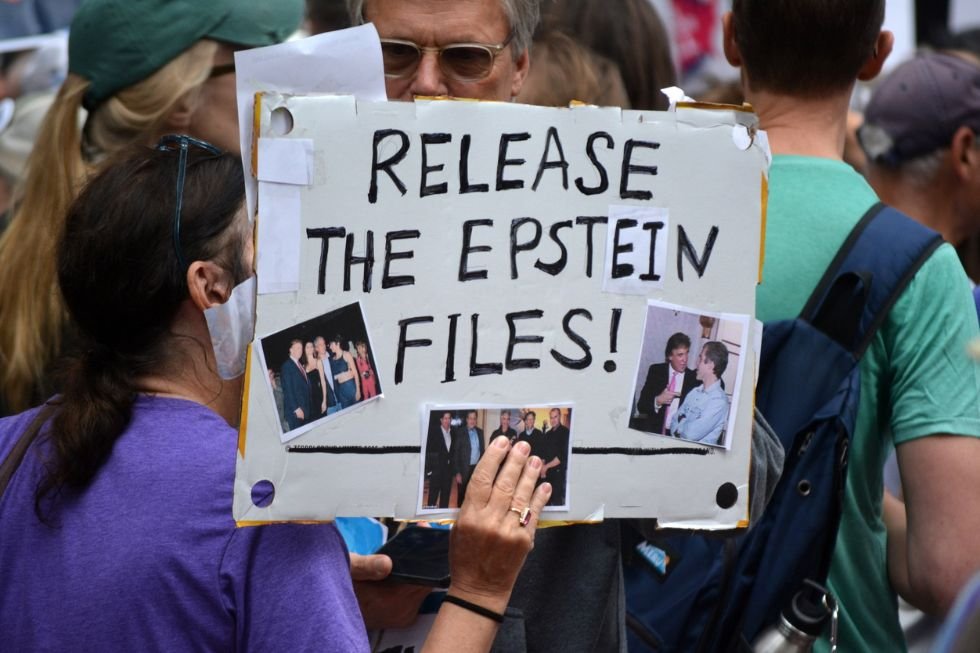The summer of 2025 was a very eventful season for the US as the Department of Justice (DOJ) notified US President Donald Trump that he appeared multiple times in the Epstein files. Congress is involved and has formed committees.
There has been backlash from Trump’s own Make America Great Again (MAGA) supporters as he has resorted to his usual tactics of deflection. Despite this, Trump has not been able to avoid the whirlwind of events. The outcry for transparency is why the Epstein files remain a ticking public and political time bomb with escalating pressures from all sides.
Who was Jeffrey Epstein?
Jeffrey Epstein was a financier who was a convicted sex offender and an alleged sex trafficker accused of abusing dozens of teenage girls at some of his multi-million dollar estates around the US and private Caribbean islands.
Epstein was born and raised in New York City. Although he did not graduate from college, the prestigious Dalton School in New York offered him a position to teach math and physics. The father of one of his students had introduced Epstein to a senior partner at Bear Stearns, a respected Wall Street investment firm. Epstein quickly advanced through the ranks and earned a promotion to partner in under five years.
In the early 1980s, Jeffrey Epstein created his own firm, J Epstein and Company. His firm managed assets for uber-wealthy clients with assets reaching into the billions. Mr. Epstein quickly used his fortune to purchase mansions in New York and Florida, a ranch in New Mexico and two islands — Little St. James and Great St. James — in the US Virgin Islands. As his wealth grew, he began increasingly mingling with celebrities, artists and politicians.
In 2005, parents informed authorities in Florida that Epstein had molested their 14-year-old daughter at his Florida mansion. When the police searched the property, they discovered pictures of young girls throughout the house. Investigators later determined that Epstein had developed a scheme to exploit several vulnerable girls and women, some of whom were underage.
This scheme started in 1994 and lasted until at least 2004. Mr. Epstein made a deal with Federal prosecutors in 2008 that avoided federal charges and could have led to a life sentence. Instead, he was sentenced to 18 months and was released early on probation after only 13 months.
Fast-forwarding to 2019, federal agents again arrested Jeffrey Epstein on August 6 for running a large network of underage girls for sex that took place between 2002 and 2005. Mr. Epstein, if found guilty, would face up to a 45-year prison sentence. Guards placed Mr. Epstein on suicide watch and recorded his behavior and activity every 15 minutes. However, on August 10, 2019, Jeffrey Epstein was found dead by suicide while awaiting trial.
Maxwell’s trial and conviction
In July 2020, following Epstein’s death, his former girlfriend, Ghislaine Maxwell, became a person of interest in Epstein’s sex schemes. She was arrested for her role in Epstein’s crimes. Prosecutors alleged that Maxwell had helped recruit minors whom Epstein later abused.
Maxwell, an Oxford-educated scholar, introduced Epstein to her wealthy and influential acquaintances, including former US President Bill Clinton and the Duke of York. In June 2022, after a one-month jury trial, Ghislaine Maxwell was sentenced to 20 years for her role in helping Jeffrey Epstein abuse minors.
What the Epstein files contain
The Epstein files comprise documents from two criminal investigations, including interview transcripts with victims and witnesses, as well as items seized during raids on his properties. To date, the House Oversight Committee has released 33,000 pages, though a large portion of them have already been available to the public. Nonetheless, consolidating these documents into one official release has increased their impact, renewed public scrutiny and fueled speculation about what remains sealed.
The files reference numerous celebrities and politicians. Among those mentioned so far are Clinton and Trump, the late New Mexico Governor Bill Richardson, actor Kevin Spacey, Prince Andrew, former Israeli Prime Minister Ehud Barak, renowned attorney Alan Dershowitz and former US Vice President Al Gore. Along with the numerous names listed, the 900 pages of unsealed documents also named friends, associates and alleged victims.
Investigators and legal experts continue to emphasize that a mention in these records does not imply guilt or direct involvement in Epstein’s crimes. Nevertheless, the association alone has proven damaging for many, as the shadow of Epstein’s crimes has cast doubt on anyone connected to him.
Unanswered questions
Several questions remain unanswered, notably how Jeffrey Epstein accumulated his wealth. From 1998 to 2013, American multinational financial services firm JPMorgan Chase often allowed Epstein to withdraw large sums of money. His account frequently held hundreds of millions of dollars. Epstein also inexplicably received significant sums from some of America’s wealthiest individuals, typically in installments of tens of millions of dollars.
Additionally, Epstein was a client of Deutsche Bank from 2013 to 2018. Both JPMorgan and Deutsche Bank settled lawsuits with their victims, who alleged that both banks knew about the underage sex trafficking network.
In a letter from Senator Ron Wyden, the ranking member on the Senate Finance Committee, to the DOJ, Wyden criticized the Trump administration for not conducting a thorough investigation into the funding of Epstein’s network. Wyden urged the committee to investigate the role of sanctioned Russian banks involved in financing Epstein’s sex trafficking network.
The Treasury Department’s Epstein file shows that he used multiple sanctioned Russian banks to wire hundreds of millions of dollars to his operations. This has raised urgent questions about how such transactions went undetected for so long.
Wyden also requested that the committee conduct depositions with the bankers responsible for overseeing Mr. Epstein’s large transactions, especially when these bankers perform “know your customer” checks as part of their due diligence on large wire transfers — safeguards designed to flag suspicious activity and prevent this kind of abuse.
Mr. Epstein’s flight logs and black books have attracted significant public attention. In February, Attorney General Pam Bondi released the initial redacted documents. The flight logs show how often Mr. Epstein traveled, along with his routes, destinations and individuals who traveled with him. The black book was Mr. Epstein’s contact list, part of the first documents to be released, which included names and phone numbers of individuals he knew, redacted.
There have been several recent disclosures involving Donald Trump in the Epstein files. Among them is a “birthday book” entry that included a drawing of a woman’s body outline with a sexually suggestive note allegedly signed by Trump, which was unsealed this summer and has sparked renewed scrutiny. Trump has denied writing it and has filed a lawsuit over its release.
Still, the controversy underscores Senator Wyden’s broader point: without full transparency, the public cannot fully understand the extent of Epstein’s financial or political connections. Alongside these revelations are photos documenting Trump and Epstein’s decade-long friendship before their falling out in 2007, emphasizing how the circle of high-profile figures connected to Epstein continues to attract public and political scrutiny.
Legal and political fallout
Files related to Mr. Epstein have sparked investigations by congressional committees. These probes have led to legal and political repercussions, fueling debates over public transparency versus elite protection. A complex web of promises of transparency, partial disclosures and denials now surrounds the Epstein story — with President Trump firmly at the center of the controversy.
Politico published a timeline that raises questions for President Trump. Specifically, Kash Patel, during his confirmation hearing for Federal Bureau of Investigation (FBI) director, promised to reveal connections to Epstein if confirmed. On February 21, Attorney General Pam Bondi stated that the Jeffrey Epstein “client list” was on her desk. Subsequently, on February 27, Bondi released the initial set of Epstein files. In May, Bondi informed Trump that the Epstein files named him several times. But on July 7, in a DOJ memo, Attorney General Bondi said there is no “client list” and that Mr. Epstein’s death was a suicide.
The situation has raised questions about the “client list” and whether authorities are ensuring the protection of elite names on that list. The inconsistent statements and shifting timeline have intensified scrutiny over whether a definitive list exists, who appears on it and whether prosecutorial decisions and transparency have inadvertently protected — or intentionally shielded — influential figures implicated in the case.
The political fallout is where the files are most dangerous. In this rare situation, Trump could lose political support regardless of whether the Epstein files are ultimately released. On one hand, his base — normally steadfast and forgiving — has shown visible frustration with the way he has handled the controversy.
Many of his supporters rallied behind his 2024 campaign promise of “full transparency,” and now view his refusal to deliver as a betrayal of that pledge. If the files are fully released and he is mentioned in them, as Pam Bondi told him he was back in May, then he is likely to lose more of his support for his alleged involvement in the sexual abuse of numerous women.
However, keeping the files sealed presents serious risks. Since Congress reconvened after its summer recess, calls for transparency have grown and the perception of a cover-up has only intensified the explosive nature of the issue. For Trump, the risk is that secrecy encourages speculation and fuels conspiracy theories, keeping the story alive in the news cycle.
The Epstein files have become a political ticking time bomb for both the administration and those lawmakers who appear unwilling to confront the scandal. Members of Congress who fail to demand the release may find themselves ousted in favor of challengers who promise openness and accountability.
While the House Republican leadership recently blocked an amendment that would have required the full release of the files, several rank-and-file Republicans broke ranks to support it, signaling cracks within the party. The longer the White House delays disclosure, the greater the risk to both Trump’s support among voters and the unity of his congressional coalition.
In addition to these investigations, President Trump has encountered pressure and disagreements with his supporters over his failure to release the files. This was a promise he made during his 2024 campaign. The lack of transparency has fueled numerous conspiracy theories regarding Jeffrey Epstein’s true fate.
Due to the lack of transparency, there is also an erosion of trust in institutions such as the Justice Department and the media. For many, this has been a call to arms; there has been a bipartisan push to unseal the documents.
While some are pushing to unseal the files, there is also resistance to keep the documents sealed for the protection of the victims, given that Epstein harmed more than 1,000 women, each of which have suffered unique trauma.
A memo from the Justice Department said, “[s]ensitive information relating to these victims is intertwined throughout the materials. This includes specific details such as victim names and likenesses, physical descriptions, places of birth, associates, and employment history.” While victim protection is a legitimate concern, a large number of victims have advocated for the release of files, further fueling the crisis.
The case for transparency is straightforward. There has been bipartisan support to hold those involved in Mr. Epstein’s sex trafficking network accountable for their crimes. Senator Ron Wyden wrote a letter to Attorney General Bondi, Secretary of the Treasury Scott Bessent and FBI Director Kash Patel, blasting the Trump administration for withholding documents that would limit the exposure to Donald Trump’s ties with Jeffrey Epstein. Senator Wyden also noted that, following his investigation, there appeared to be additional individuals who need to be held accountable for the crimes they helped facilitate.
Growing pressures on Trump
This summer was a very eventful season with the Trump administration being under increased pressure to disclose the information from the Epstein files. Trump has resorted to his usual tactics of deflecting and has even gone so far as to accuse former President Barack Obama of treason.
While Trump has begged his supporters to “not waste Time and Energy on Jeffrey Epstein, somebody that nobody cares about,” he has faced backlash from his MAGA base for the lack of transparency over a two-page memo from the DOJ. The memo claimed that after an extensive review, there was no evidence of a “client list.”
The additional deflection has led to increased scrutiny from both the public and the legal system. Democrats, too, are taking this opportunity to attack Trump. Senator Jon Ossoff kicked off his campaign asking, “Did anyone really think the sexual predator president who used to party with Jeffrey Epstein was going to release the Epstein files?” House Democrats sought to introduce a long-shot resolution demanding the release of all files related to the Epstein case.
However, before the scheduled vote, House Speaker Mike Johnson concluded business early and gavelled Congress into its month-long summer recess to avoid holding the vote. Some Republicans, such as Trump’s former Vice President Mike Pence and MAGA-supporting Congresswoman Marjorie Taylor Greene, have broken ranks.
Greene has said, “[c]rimes have been committed,” and “[i]f there’s no justice and no accountability, people are going to get sick of it. That’s where people largely are.” They are also diverging from Trump and pushing for the files to be released.
The DOJ, in its memo denying a client list exists, has cited victim protection precedents and stated that “much of the material is subject to court-ordered sealing.” While the administration continues to cite victim protection precedents, many critics of the administration label the moves as politically motivated.
Jeffrey Epstein’s files have shifted from a distant scandal to a highly charged controversy over accountability — or the lack thereof — in modern American politics. House Democrats have released hundreds of pages of documents. The birthday card that included a note for Epstein’s 50th birthday, featuring an outline of a woman’s body and a sexually suggestive tone, is reportedly signed by Trump, who strongly denies it and has even sued over it, bringing transparency into public debate.
Meanwhile, the Senate narrowly blocked a Democratic effort to require the full release of all related files. The DOJ has begun releasing redacted grand jury testimony, but with some reservations, citing ongoing victim protections.
Amidst this political maneuvering, legal battles and institutional hurdles, one fact remains undeniable: the Epstein files are still a ticking time bomb — one that could reveal truths, test and potentially destroy loyalties. Consequences, including denials, diversions and refusals, are just beginning.
[Kaitlyn Diana edited this piece.]
The views expressed in this article are the author’s own and do not necessarily reflect Fair Observer’s editorial policy.
Support Fair Observer
We rely on your support for our independence, diversity and quality.
For more than 10 years, Fair Observer has been free, fair and independent. No billionaire owns us, no advertisers control us. We are a reader-supported nonprofit. Unlike many other publications, we keep our content free for readers regardless of where they live or whether they can afford to pay. We have no paywalls and no ads.
In the post-truth era of fake news, echo chambers and filter bubbles, we publish a plurality of perspectives from around the world. Anyone can publish with us, but everyone goes through a rigorous editorial process. So, you get fact-checked, well-reasoned content instead of noise.
We publish 3,000+ voices from 90+ countries. We also conduct education and training programs
on subjects ranging from digital media and journalism to writing and critical thinking. This
doesn’t come cheap. Servers, editors, trainers and web developers cost
money.
Please consider supporting us on a regular basis as a recurring donor or a
sustaining member.
Will you support FO’s journalism?
We rely on your support for our independence, diversity and quality.












Comment